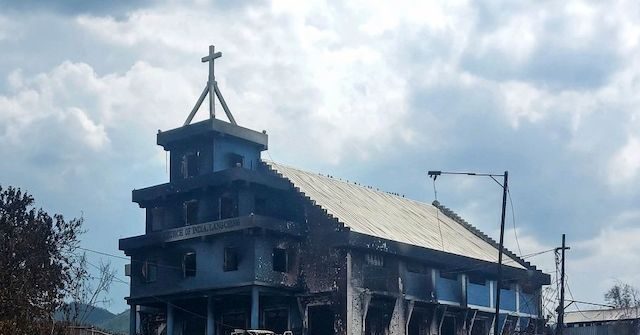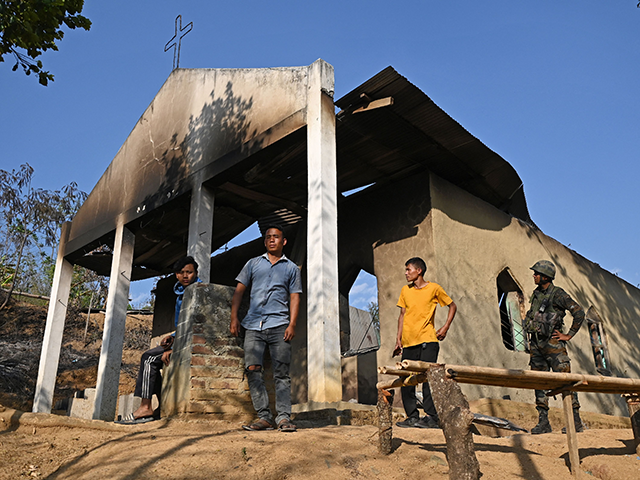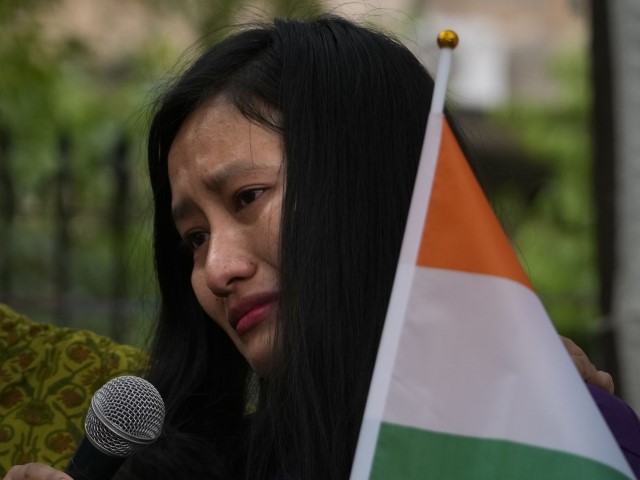Top News
India Charges Four Journalists with ‘Misrepresenting’ Manipur Violence to ‘Provoke Clashes’

Police in India’s conflict-torn state of Manipur filed criminal charges against four journalists on Tuesday for allegedly “misrepresenting facts” about the state’s tribal conflict, with the goal of increasing tensions to “provoke clashes.” In truth, the state government is apparently furious at the reporters for accusing it of taking sides during the tribal war.
The journalists facing police charges of provoking unrest in Manipur include Seema Mustafa, president of the Editors Guild of India (EGI), and reporters Seema Guha, Bharat Bhushan and Sanjay Kapoor.
The chief minister of Manipur, BJP member N. Biren Singh, accused the EGI fact-finding team of failing to understand or properly report on the situation in his state during their visit from August 7-10.
“If you want to do something, please come to the spot, see the ground reality, meet representatives of communities and all victims, and publish what you found,” Singh told EGI.
“Meeting some sections of the people only and coming to a conclusion – that’s a disservice and condemnable,” he said.
According to the Times of India (TOI), the EGI members were charged with “promoting enmity between communities, presenting false declarations as true, and deliberate intent to hurt religious feelings” under India’s information technology and press laws. The charges were based on a complaint from an unidentified “activist.”
The complaint essentially accused the EGI team of ignoring details such as “large-scale immigration” across the Burmese border that is swelling the population of the hill tribes.
Singh’s administration has been attempting to crack down on illegal immigration using biometric data, blaming the newcomers for stirring up ethnic unrest and dealing in narcotics. The complaint against EGI actually claimed its reporting was sponsored by “narco-terrorists.”
The EGI report complained that BJP’s shutdown of Internet access in Manipur gave local media aligned with various tribal groups an opportunity to dominate coverage with biased reporting. The report said Manipur media became “Meitei media” during the conflict, showing a heavy bias in favor of the Hindu majority tribe.
EGI said that even officers of the Indian army dispatched to Manipur complained about “uneven and biased reportage of the ethnic clashes.” They accused Singh of orchestrating coverage favorable to his administration.
Women activists carry posters at a gathering protesting against ethnic violence in the northeastern state of Manipur, in Kolkata, India, Wednesday, July 26, 2023. (Bikas Das/AP)
Several Manipur journalists and guilds objected to EGI’s conclusions, dismissing their report as “half-baked” and compiled in a “rush.”
“There are so many discrepancies, with them depending on hearsay without checking up the records which say something else. These guys came here for four days and came to a conclusion. They should not have rushed it,” journalist Pradip Phanjoubam said on Tuesday.
Two journalistic organizations, the All Manipur Working Journalists’ Union and the Editors’ Guild Manipur, on Tuesday threatened legal action against EGI for “misrepresentations” in its report.
On the other hand, EGI said it was appalled by the charges brought against its fact-finding team and demanded their immediate withdrawal, as did the Press Club of India.
“This is a strong arm tactic by the state government which amounts to intimidation of the apex media body of the country,” the Press Club of India declared.
Press Club of India strongly condemns lodging of a police case against 3 members of a fact-finding committee of the Editors Guild of India and its president on the media coverage of the ethnic clash and violence in Manipur. pic.twitter.com/s4ZdokGOXo
— Press Club of India (@PCITweets) September 4, 2023
Unrest in Manipur turned violent in April after the majority Hindu tribe, the Meitei, demanded the same special benefits afforded to impoverished, mostly Christian hill tribes, led by the Kuki. Mob violence was perpetrated by both sides, including physical assaults and vandalism. The Kuki reported that Meitei mobs burned many of their churches.

An Indian army soldier (R) stands along with villagers in front of a ransacked church that was set on fire by a mob in the ethnic violence hit area of Heiroklian village in Senapati district, in India’s Manipur state on May 8, 2023. (ARUN SANKAR/AFP via Getty Images)
The Indian opposition accused Prime Minister Narendra Modi and his Hindu nationalist BJP party of ignoring the conflict or actively siding with the Meitei. Modi did not break his silence on Manipur until a horrific video showing the gang rape of two tribal women sparked nationwide outrage in July.
At an Indian Independence Day address on August 15, Modi said “extended peace” was returning to Manipur, and vowed his government would “continue to work hard” on restoring order to the state. Modi’s critics accused him of downplaying the ongoing conflict in the state.

Indian Prime Minister Narendra Modi (Pavel Golovkin, Pool/AP)
On Monday, the United Nations published a statement of concern about “alleged acts of sexual violence, extrajudicial killings, home destruction, forced displacement, torture and ill-treatment perpetrated in Manipur,” including hundreds of deaths, thousands of refugees displaced, and “hundreds of churches being burnt down.”

A Kuki tribal woman breaks down while narrating the ordeal of her escape after her village was burnt down, during a sit-in protest against the killing of tribals in their northeastern home state of Manipur, in New Delhi, India, Monday, May 29, 2023. (Manish Swarup/AP)
“We have serious concerns about the apparent slow and inadequate response by the Government of India, including law enforcement, to stem physical and sexual violence and hate speech in Manipur,” the U.N. experts said.
The Indian government immediately rejected the U.N. statement, saying the U.N. experts were led astray by misinformation and did not appreciate the unique challenges of Manipur.
“The Permanent Mission of India completely rejects the news release as it is not only unwarranted, presumptive and misleading but also betrays a complete lack of understanding on the situation in Manipur and the steps taken by Government of India to address it,” said the Indian delegation to the United Nations.
Read the full article here


















